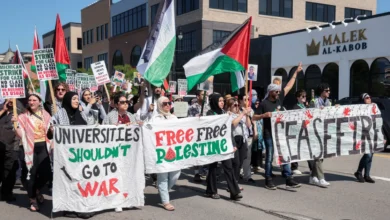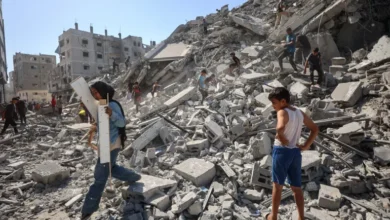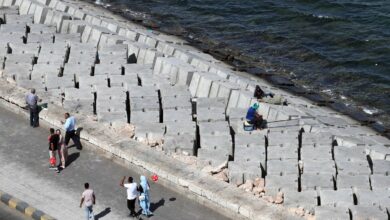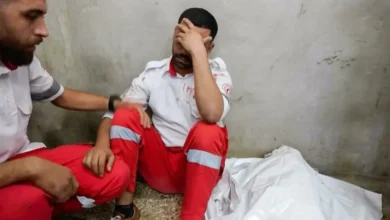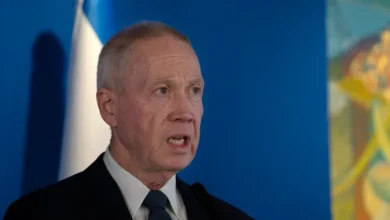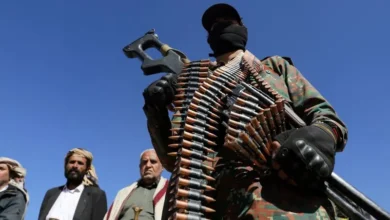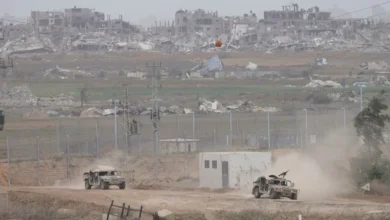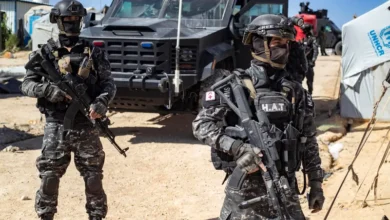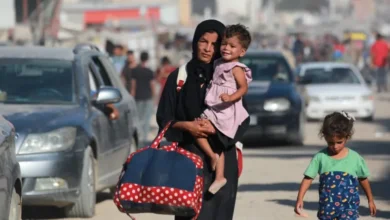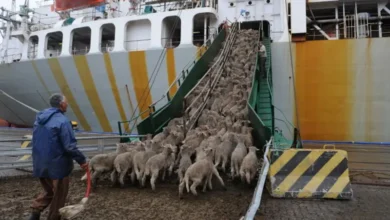Israeli strikes kill 100 in one of war’s deadliest nights, Gaza officials say

At a funeral in Gaza on Monday a line of Palestinians touched the white shrouds containing the bodies of at least 70 people who Palestinian health officials said were killed by an Israeli airstrike targeting Maghazi in the center of the besieged strip.
The funeral followed one of the enclave’s deadliest nights in the 11-week-old battle between Israel and Hamas, the Palestinian militant group that runs Gaza. One man hugged a dead child, while others were hysterical.
One man, Ibrahim Youssef, said his wife and four children including a four-month-old baby, were trapped under the rubble after an airstrike hit the house where they were staying in the Maghazi refugee camp.
Youssef said he was away when he heard the strike and hurried back home. Despite saving one of his sons, he had been unable to reach the others.
“What did they do wrong?” he asked. “Were there resistance fighters here?”
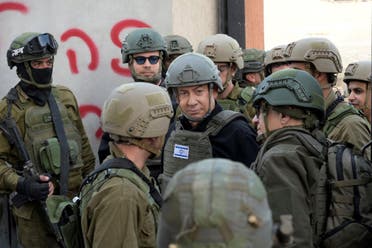
Israel denies targeting civilians and accuses Hamas of building tunnels and military infrastructure in densely populated civilian areas.
The strikes that began hours before midnight persisted into Monday. Palestinian media said Israel had stepped up its air and ground shelling in central Gaza.
Health ministry spokesperson Ashraf al-Qidra said many of those killed at Maghazi were women and children. Eight others were killed as Israeli planes and tanks carried out dozens of strikes on houses and roads in nearby al-Bureij and al-Nusseirat, health officials said.
Medics said an Israeli airstrike in Khan Younis in southern Gaza killed 23, bringing total Palestinian fatalities overnight to more than 100.
Pope Francis said in a Christmas message on Monday that children dying in wars, including in Gaza, are the “little Jesuses of today” and that Israeli strikes were reaping an “appalling harvest” of innocent civilians.
Some of Gaza’s small Christian community took a break from the conflict and suffering to celebrate Christmas.
Several residents made pleas on social media for people to give them shelter as they have become homeless after leaving their homes in Bureij.
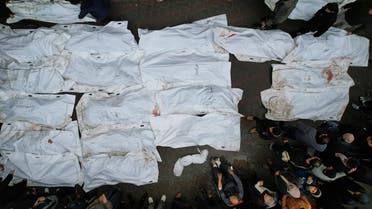
“I have 60 people in the house, people who arrived at my house believing that central Gaza area was safe. Now we are searching for a place to get to,” said Odeh, a resident of the refugee camps.
The Israeli army said it was reviewing the report of a Maghazi incident and was committed to minimizing harm to civilians. Israeli says Hamas operates in densely populated areas and uses civilians as human shields, which Hamas denies.
The Palestinian Red Crescent said Israeli warplanes were bombing main roads, hindering the passage of ambulances and emergency vehicles.
Christian clergy cancelled celebrations in Bethlehem, the Israeli-occupied Palestinian West Bank city where Christian tradition says Jesus was born in a stable 2,000 years ago.
Palestinian Christians held a candle-lit Christmas vigil in Bethlehem with hymns and prayers for peace in Gaza, instead of the usual celebrations.
Palestinian President Mahmoud Abbas, in a departure from his usual practice that reflected the current gloom over Gaza, did not attend the midnight vigil, and instead sent a representative.
There was no large tree, the usual centerpiece of Bethlehem’s Christmas observances. Nativity figurines in churches were placed among rubble and barbed wire in solidarity with the people of Gaza.
Catastrophic conditions
Hamas and smaller militant ally Islamic Jihad, both sworn to Israel’s destruction, are believed to be holding more than 100 hostages from among 240 they captured during their October 7 rampage through Israeli towns, when they killed 1,200 people.
Since then, Israel has besieged the narrow Gaza Strip and laid much of it to waste. Nearly 20,700 people have been killed by Israeli airstrikes, including 250 in the last 24 hours, according to authorities in Hamas-ruled Gaza on Monday. Thousands more are believed to be dead under the rubble.
The vast majority of Gaza’s 2.3 million population have been driven from their homes, and the United Nations says conditions are catastrophic.
The Israeli military said on Monday that two of its soldiers had died in the last day, bringing to 158 the number killed since ground operations began on October 20.
Separately, three security sources said an Israeli airstrike outside the Syrian capital Damascus on Monday killed a senior adviser in Iran’s Islamic Revolutionary Guard Corps (IRGC).
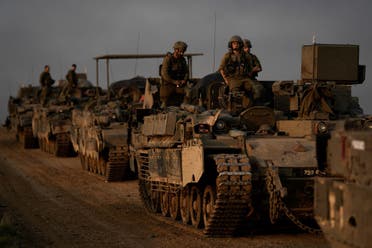
The sources told Reuters the adviser, known as Seyed Razi Mousavi, was responsible for coordinating the military alliance between Syria and Iran, which supports Hamas in Gaza.
Israeli Prime Minister Benjamin Netanyahu told lawmakers from his Likud party on Monday that the war was far from over and dismissed what he cast as media speculation his government might call a halt to the fighting.
He said Israel would not succeed in freeing its remaining hostages without applying military pressure.
Israel has been under pressure from its closest ally the United States to shift operations to a lower-intensity phase and reduce civilian deaths.
On Saturday, Israel’s military chief of staff said his forces had largely achieved operational control in the north of Gaza and would expand operations further in the south.
But residents say fighting has only intensified in northern districts.
Diplomatic efforts, mediated by Egypt and Qatar, on a new truce to free the remaining hostages held in Gaza have yielded little public progress, although Washington described the talks last week as “very serious.”
Islamic Jihad said a delegation led by its exiled leader Ziad al-Nakhlala was in Cairo on Sunday. His arrival followed talks attended by Hamas chief Ismail Haniyeh in recent days.
The militant groups have said they would not discuss any release of hostages unless Israel ends its war in Gaza, while the Israelis say they are willing to discuss only a pause in fighting.

